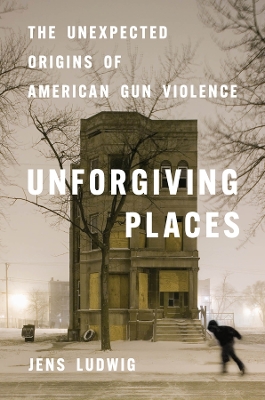Wherein Academia Catches Up To Eminem And Dr. Dre. First up, I gotta give Ludwig credit here, the text is 41% bibliography, which is truly remarkable - on the higher end of any book I've ever read. So, truly, kudos. No matter what those sources may say, the fact that they were so prevalent throughout the text is a good thing where I come from - at worst, it is crystal clear the information being used to present the narrative.
And before we get into the meat of the review, I do need to note that Ludwig's reliance on the terms "System 1" and "System 2", while perhaps academically accurate... also makes his arguments less clear and concise, as one has to constantly remember what "System 1" and "System 2" mean. So for this review, I'm going to do what Ludwig should have done and refer to them as "Automatic" and "Thinking".
Basically, Ludwig's entire point is that gun violence is not a question of "bad people" - as he claims the GOP likes to proclaim (in a fair amount of straw man, but perhaps with some valid enough straws) or of "bad environments" - as he claims the Democrats like to proclaim (in a similar amount of straw man/ straws), but rather *bad decision making*. Ummm.... duh, doc. From there, Ludwig's entire premise centralizes on disrupting the Automatic action and forcing the person about to commit gun violence - be it murder or suicide - to *think* about what they're about to do and whether they really want to do it.
So this entire 352 page book that clocks in at 41% documentation is essentially a long way of saying exactly what Eminem and Dr. Dre said in Guilty Conscience 0ver 20 years ago.
Ludwig does in fact lay out the arguments in a very systematic, academic manner. Though he *does* rely *way* too much on Chicago, the *very* place most Americans think of as having the *worst* problem with gun violence in the entire country (and as Ludwig himself admits in the text, having perhaps only the second worst gang problem in the country, IF it is behind LA's gang problem in any given year). But given that at least one recurring example used in the narrative is the doc walking his own dog... maybe there are reasons Ludwig didn't look too much further afield.
But seriously, read the book. Maybe it will help crystallize in your own mind exactly what Ludwig does throughout the text: the arguments and policies of the last century clearly aren't really moving the needle on the issue, so perhaps it is time for new ways of thinking. Of finding ways that disrupt the Automatic system and instead force individuals into the Thinking mode for even 10 minutes (or up to 3 hrs or so, in the case of suicide attempts, apparently).
Maybe if enough politicians read the book, maybe if Barack Obama or Bill Gates put it on their 2025 reading lists, maybe more people will consider these thoughts, and maybe things might actually get better.
Maybe if we'd listened to Eminem and Dre 20 yrs ago, we might have already been there.
Very much recommended.
